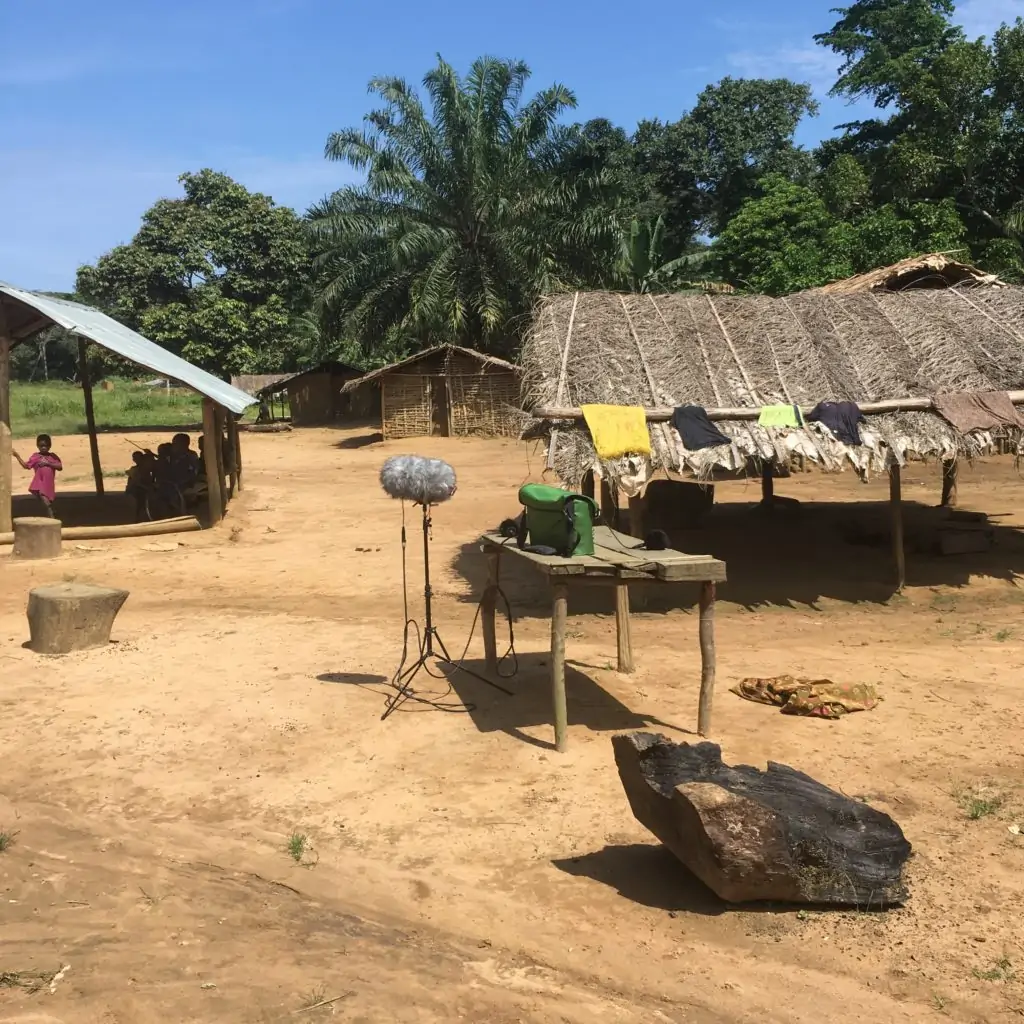
Congo Field Recording
I was commissioned to create the exhibition soundscape for a photo exhibition by New York-based photographer Pieter Henket, exhibited at Barberini Museum Potsdam. To capture original sound material, I spent two weeks with a small crew in the forests of the Congo Bassin, recording the mesmerizing environmental sounds of the second largest rainforest on earth.
In November our journey started. we flew with a tiny propeller plane from the Republic of Congo’s capital Brazzaville into the heart of the rainforest and proceeded with 4×4’s to our first remote camp in Odzala National Park.
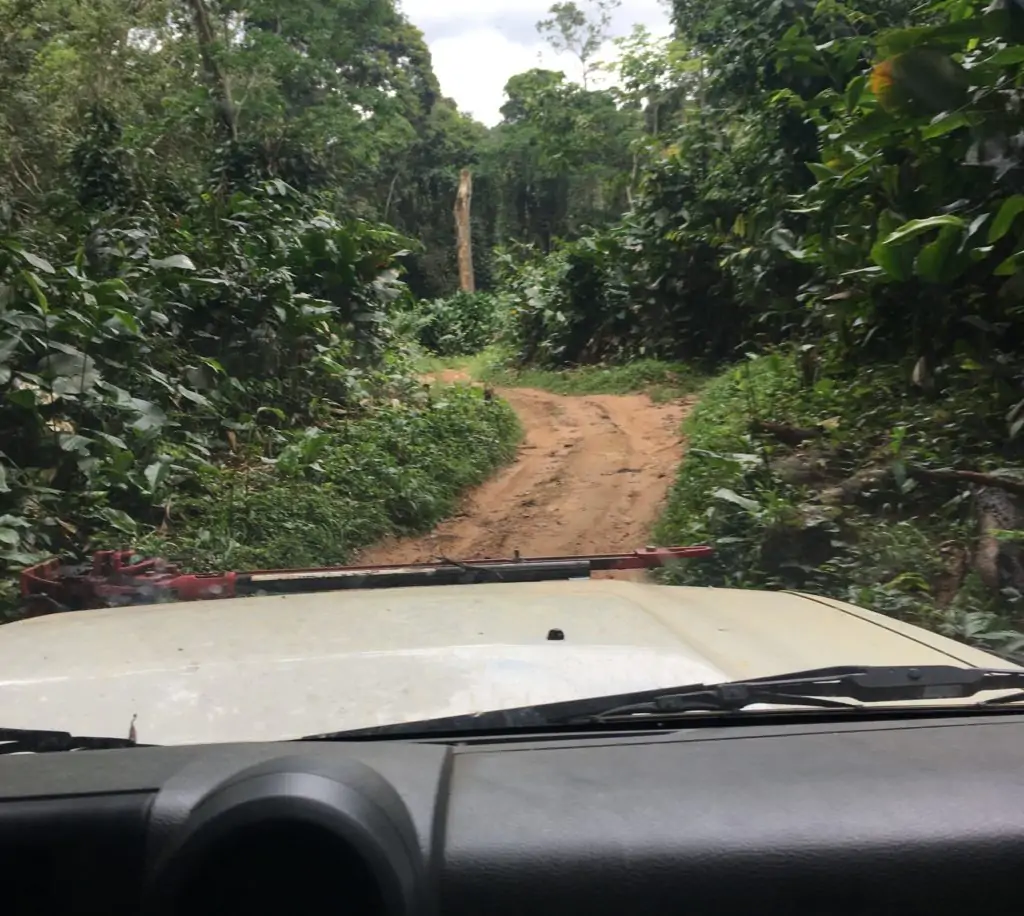
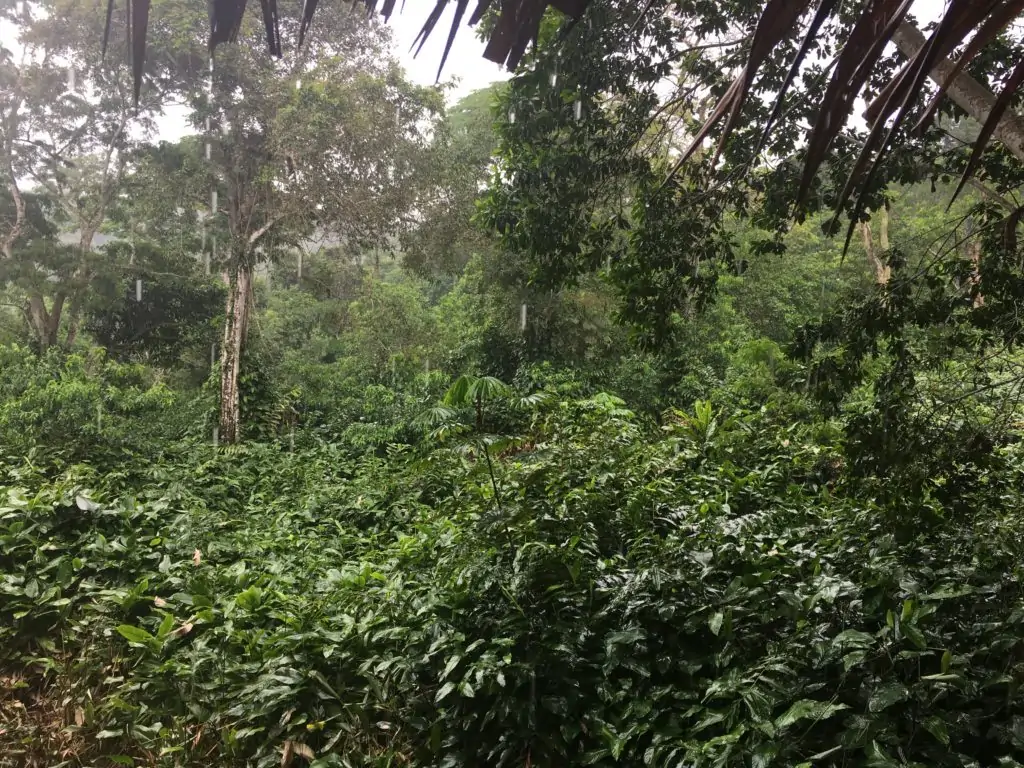
The Congo Basin is one of the most biodiverse places on earth; the sound of nature is continuously present and evolving with the time of day.
After the break of dawn, I was surrounded by a constant, buzzing symphony of insects:
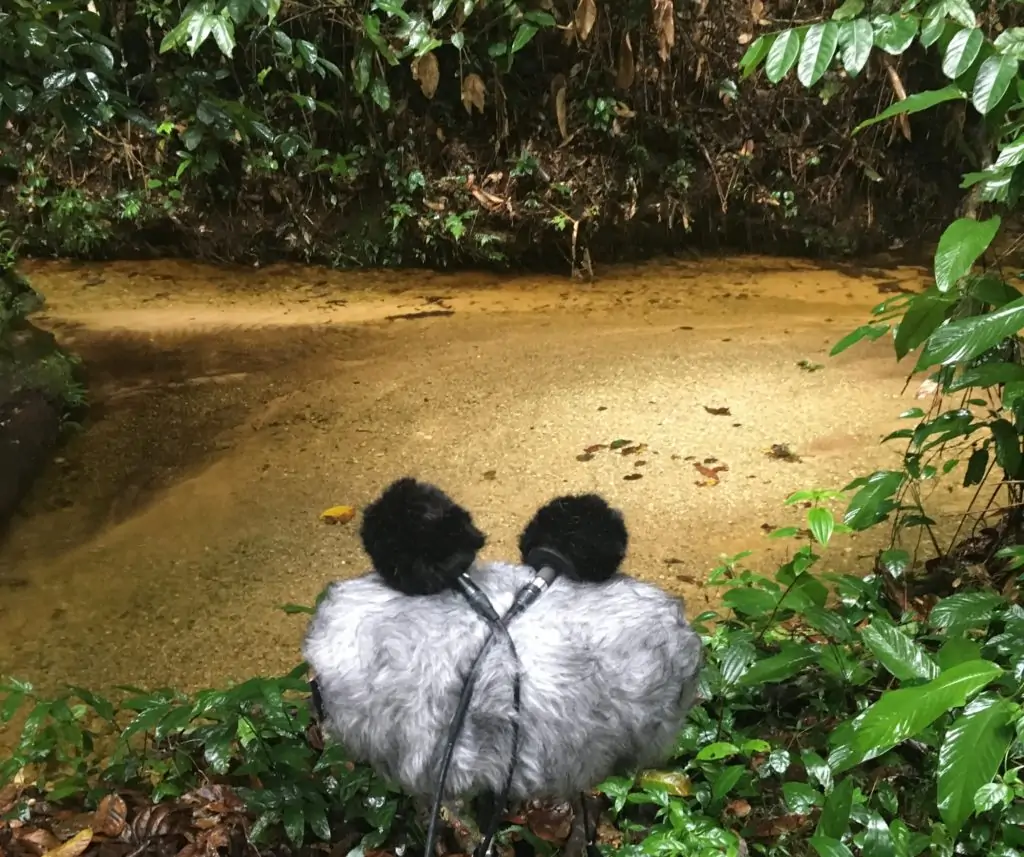
One night, I recorded the evening chorus of hundreds of frogs:
In the early mornings around sunrise, the insect soundscape was replaced by intense birdsong. Compared to the constant wall of sound emitted by the insects, the birdsong sounded much more musical – more varied in timbre, dynamic and structure.
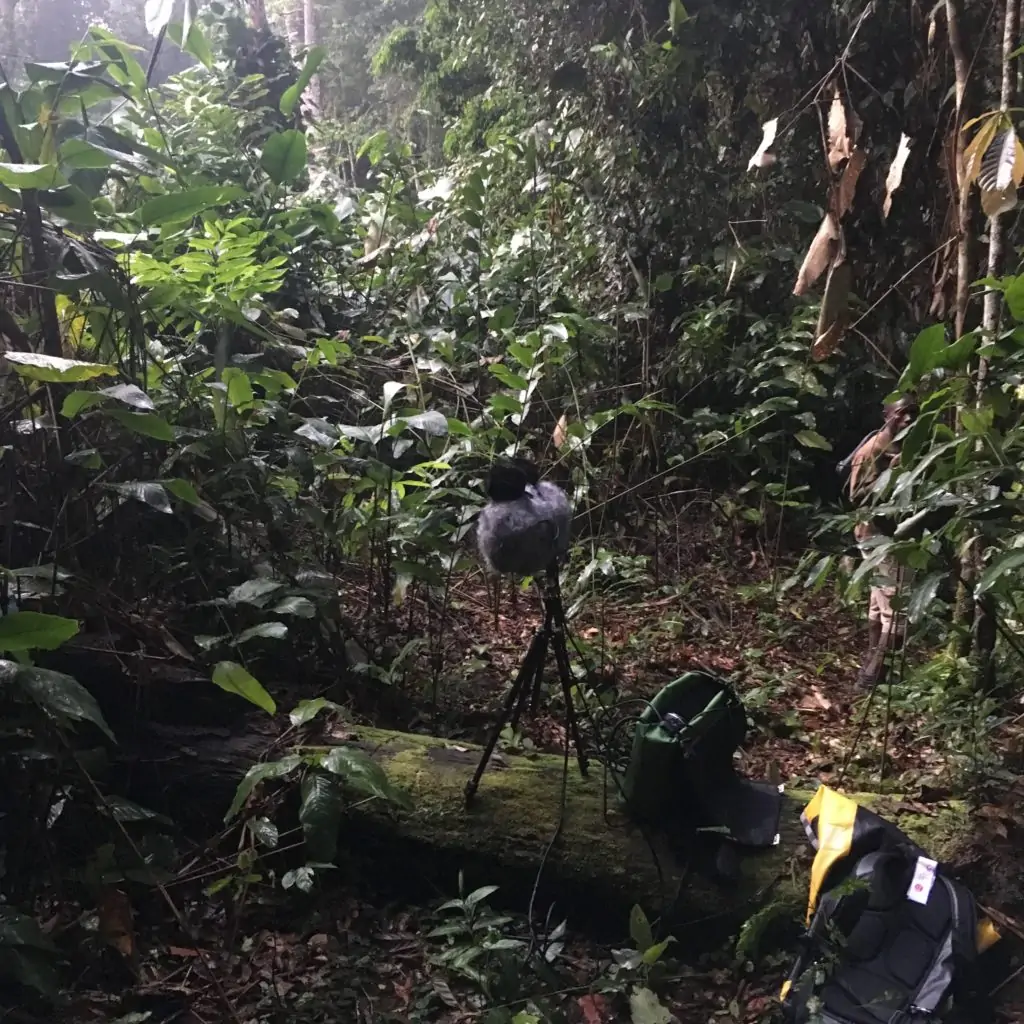
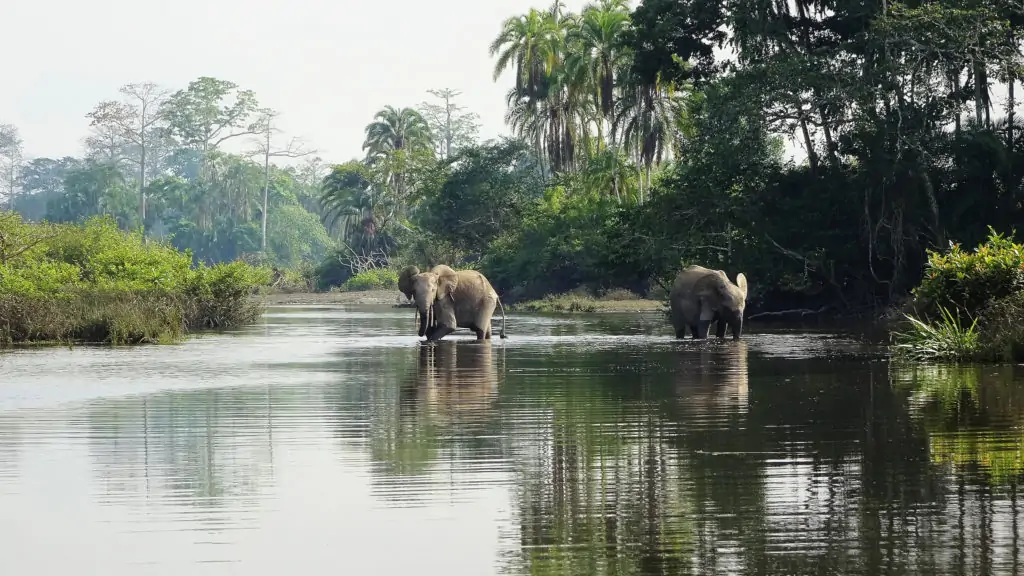
African forest elephants roam freely through the national park. A local guide mentioned to me that they usually gather at night to drink at a bay on the edge of the forest.
I wanted to capture the sounds of the elephants up close so I put one of my recorders in a dry bag, camouflaged it and placed it with a small set of microphones right next to the waterline. I left it there and let it record overnight, slightly worried if the equipment would survive the night. “Trampled by an elephant” would have been a great insurance claim, but apparently the elephants did not care much about my setup. I was able to record many hours of the sound of free-roaming elephants, sometimes only a few meters away from my microphone rig.
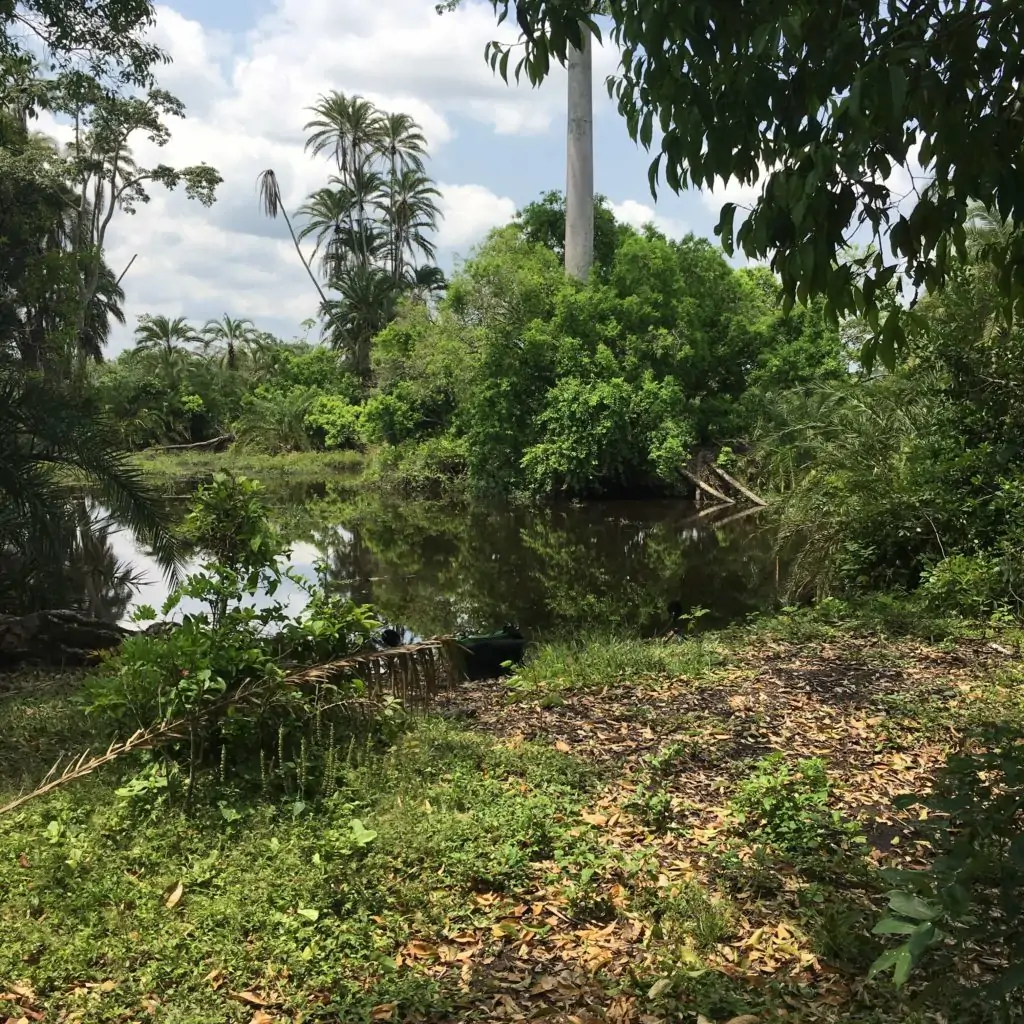
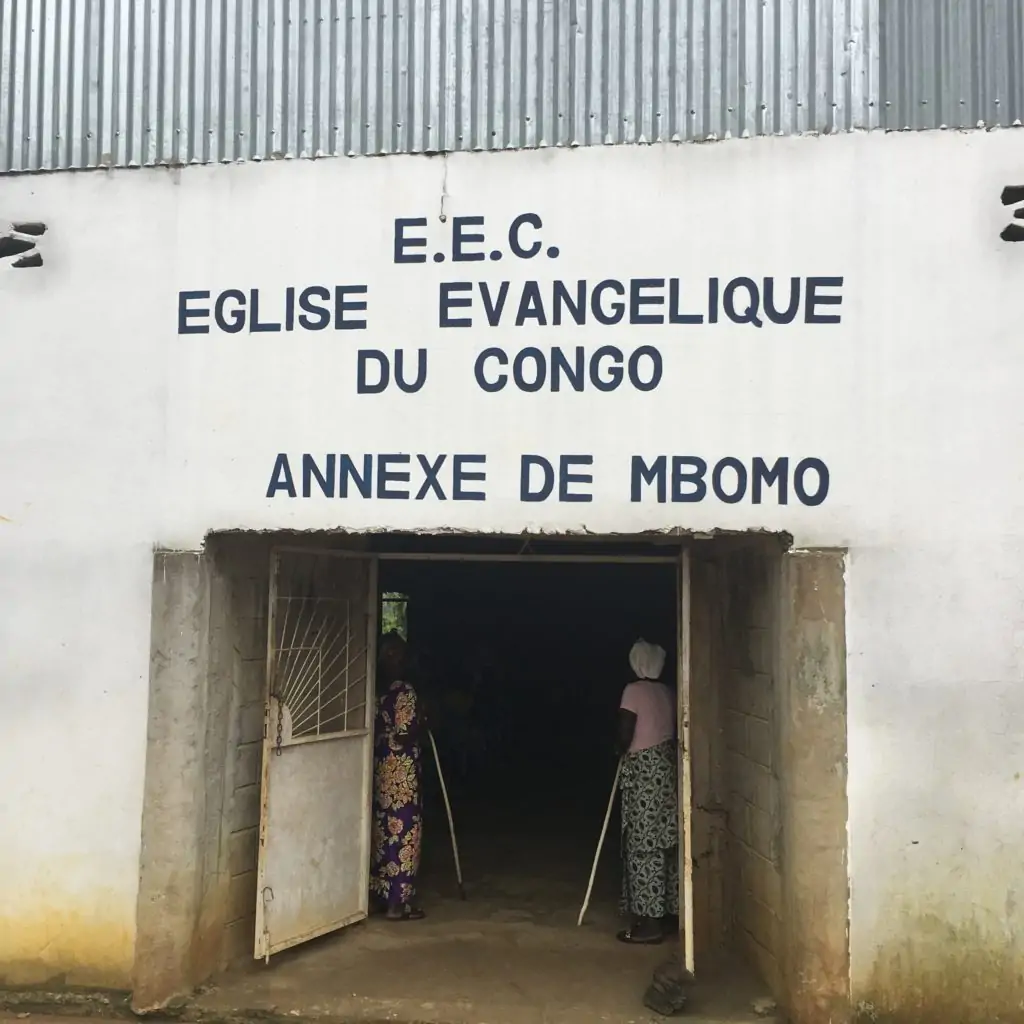
There were a few small villages scattered throughout the forest, often an hour by jeep apart. We stayed in and visited a few of them and I recorded the day to day sounds of the local communities there.
I also recorded church ceremonies, stories told to us by villagers in the local Bantu language Lingala (Ngala), the singing of school children and many other sounds.
